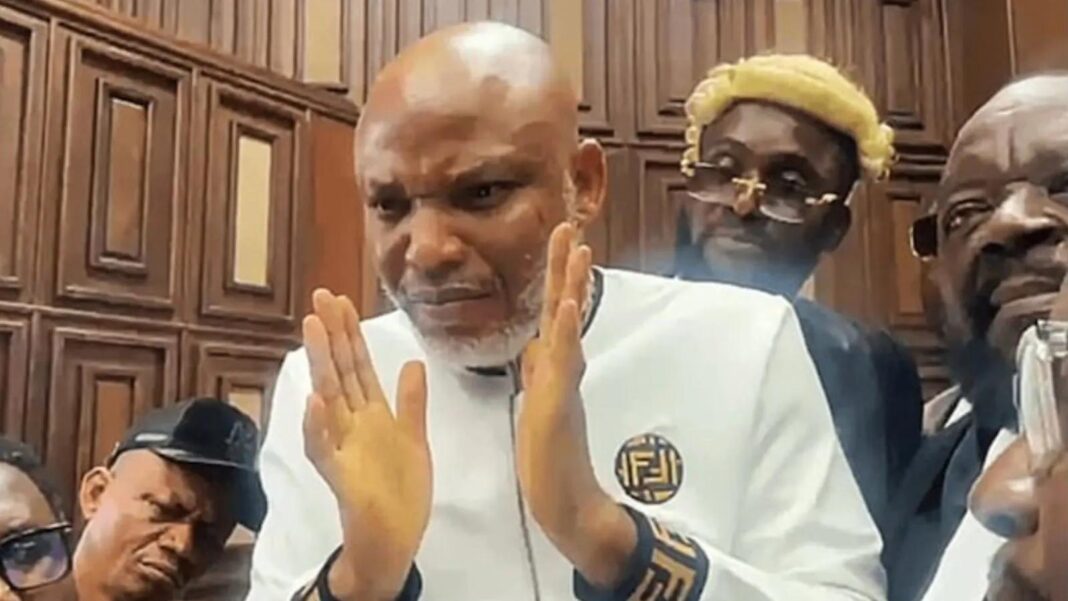Justice James Omotosho of the Federal High Court in Abuja has outlined the reasons he chose a life sentence instead of the death penalty for Nnamdi Kanu, leader of the proscribed Indigenous People of Biafra (IPOB).

Kanu was sentenced to life imprisonment after being convicted on several terrorism-related charges, including counts one, two, four, five, and six of the seven-count charge brought against him by the Department of State Services. For count three, which involved belonging to a proscribed terrorist organisation, he received 20 years without the option of a fine. He was also handed a five-year sentence on count seven for unlawfully importing a radio transmitter used for Radio Biafra’s activities.

Justice Omotosho stated that although the death penalty is the prescribed punishment for the offences, he opted for leniency based on religious principles and the global shift away from capital punishment. He referenced the teachings of Jesus Christ on mercy as one of the reasons for the decision.

The judge also ruled that Kanu should be kept in a secure facility suitable for his status, noting that the Kuje Correctional Centre would not serve the purpose of his confinement. He ordered that the IPOB leader be placed in protective custody in any secure location chosen by the authorities. The court further directed that Kanu must not access electronic devices except under strict supervision by the Office of the National Security Adviser.

Additionally, the transmitter used for his broadcasts was ordered to be forfeited to the Federal Government, with other related equipment to be seized if no appeal is filed. Kanu has 90 days to appeal the life sentence, after which the court will issue further orders.
Nnamdi Kanu was first arrested in 2015 but left the country in 2017 while on bail following a military raid on his residence. He was rearrested in Kenya in 2021 and brought back to Nigeria, a process his legal team claimed involved mistreatment—an allegation denied by Kenyan authorities.

While abroad, Kanu frequently used social media and Radio Biafra to criticise the Nigerian government, which officials alleged contributed to attacks on security agencies.
He pleaded not guilty in 2021 to charges including terrorism, treason, and spreading false information about former President Muhammadu Buhari.




